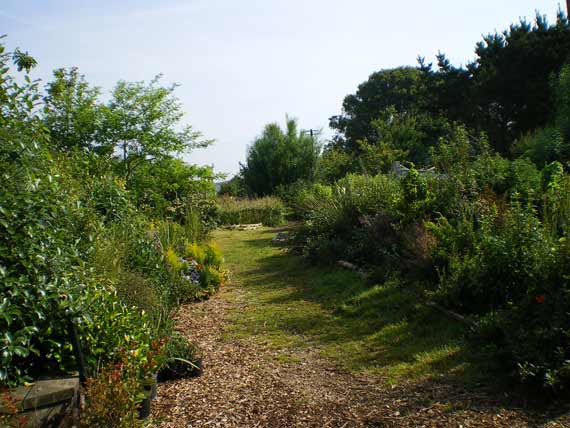|
|
|
|
To understand where someone is going, it helps to know the direction they are coming from.
Over the years, Guernsey truly has become a Floral Island. Floral Guernsey started about three years after us, followed by Floral groups in each Parish. Exciting times. It's amazing what can happen when everyone works together for a common goal. The project was green, it would leave a legacy, it was in Guernsey – and so Green Legacy Guernsey was born, purchasing trees with one hundred per cent
of money donated. We set up a website, Greenlegacyguernsey.org.uk and almost instantly we were approached by Parish Floral groups to provide free trees. (The image is one of Green Legacy's newly planted 'living streets'.) Imagine my shock, after giving away native trees, including silver birch, to discover from an newspaper article that in London silver birch had flowered early and their pollen was causing havoc with schoolchildren who were on school half term. Green Legacy Guernsey, by supplying the wrong trees to be planted in the wrong place could potentially make people ill. Ignorance of the law is no excuse. The law I'm referring to is the law of unforeseen circumstances. I now knew that silver birch had highly allergenic pollen, so how, if someone had a asthma attack from a birch I planted, or in extreme cases, died, could I honestly argue that it was unforeseen. Education was vital to creating a Floral Island and the same rule applied to leaving a healthy Green legacy for future generations. Tom agreed to come to Guernsey and do workshops at the Plant Centre. He also offered all the money raised at the workshops to go to Green Legacy to purchase the right trees to be planted in the right places. This is not as easy as it sounds, but it is possible.
Tom is selflessly putting years of research into the public domain, simply because he wants to make a difference. In our case and for thousands of others, he is. Tom is the brains behind the Society for Allergy Free Environmental Gardening and I'm proud to be associated with him and to be a part of it. Amazingly, despite hundreds of associations listing the most allergenic native trees on the internet, these trees continue to be planted in highly In Tom's book, Allergy Free Gardening, Dr Walter H Lewis says "It makes no sense to plant highly allergenic trees or shrubs close to where we live." He is right, and with education, it won't be long before it will be difficult to argue, that someone's pollen related allergy or asthma attack was down to unforeseen circumstances.
First published May 2014
Articles on allergen-free gardening
|

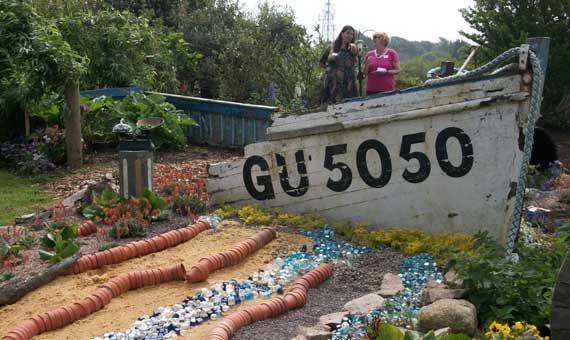
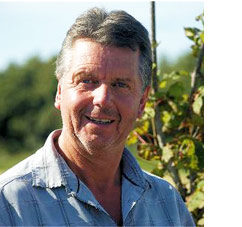 I was brought up in Northern Ireland and my main memories of the first ten years of my life are: access to the countryside, nature, tidying neighbours' gardens, helping my friend on his father's allotment and school.
I was brought up in Northern Ireland and my main memories of the first ten years of my life are: access to the countryside, nature, tidying neighbours' gardens, helping my friend on his father's allotment and school.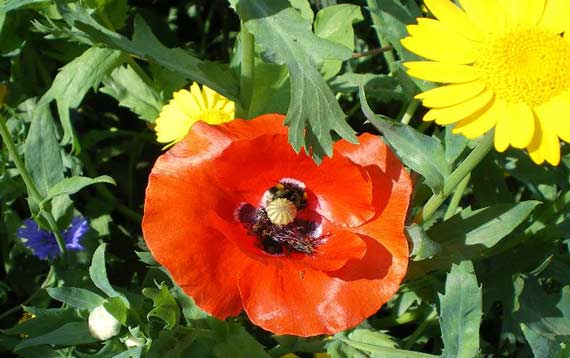
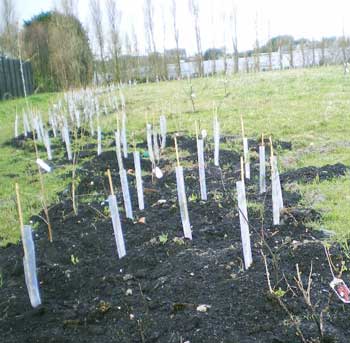 Over the years, all workshops at Queux Patio Plant Centre were free. People who attended would offer donations and we would
Over the years, all workshops at Queux Patio Plant Centre were free. People who attended would offer donations and we would 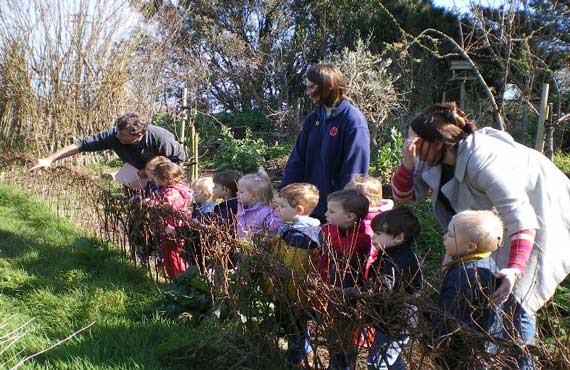
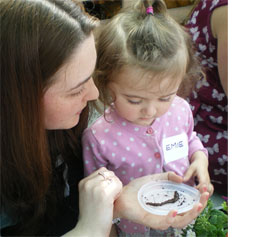 populated urban areas including Hospitals and School playgrounds. We hold the Quality badge for Learning Outside the Classroom so Allergy friendly school playgrounds is of particular interest to me.
populated urban areas including Hospitals and School playgrounds. We hold the Quality badge for Learning Outside the Classroom so Allergy friendly school playgrounds is of particular interest to me.